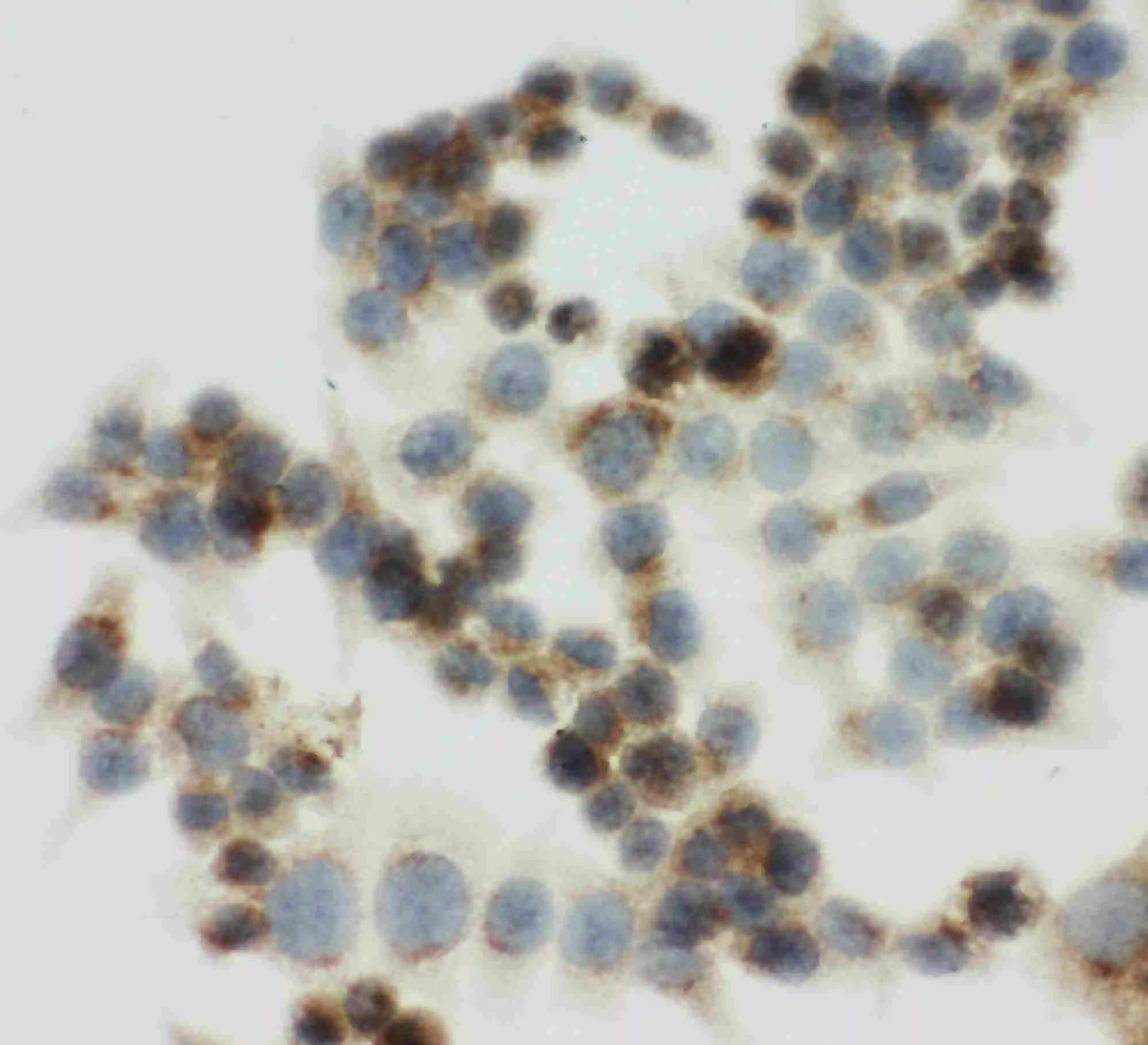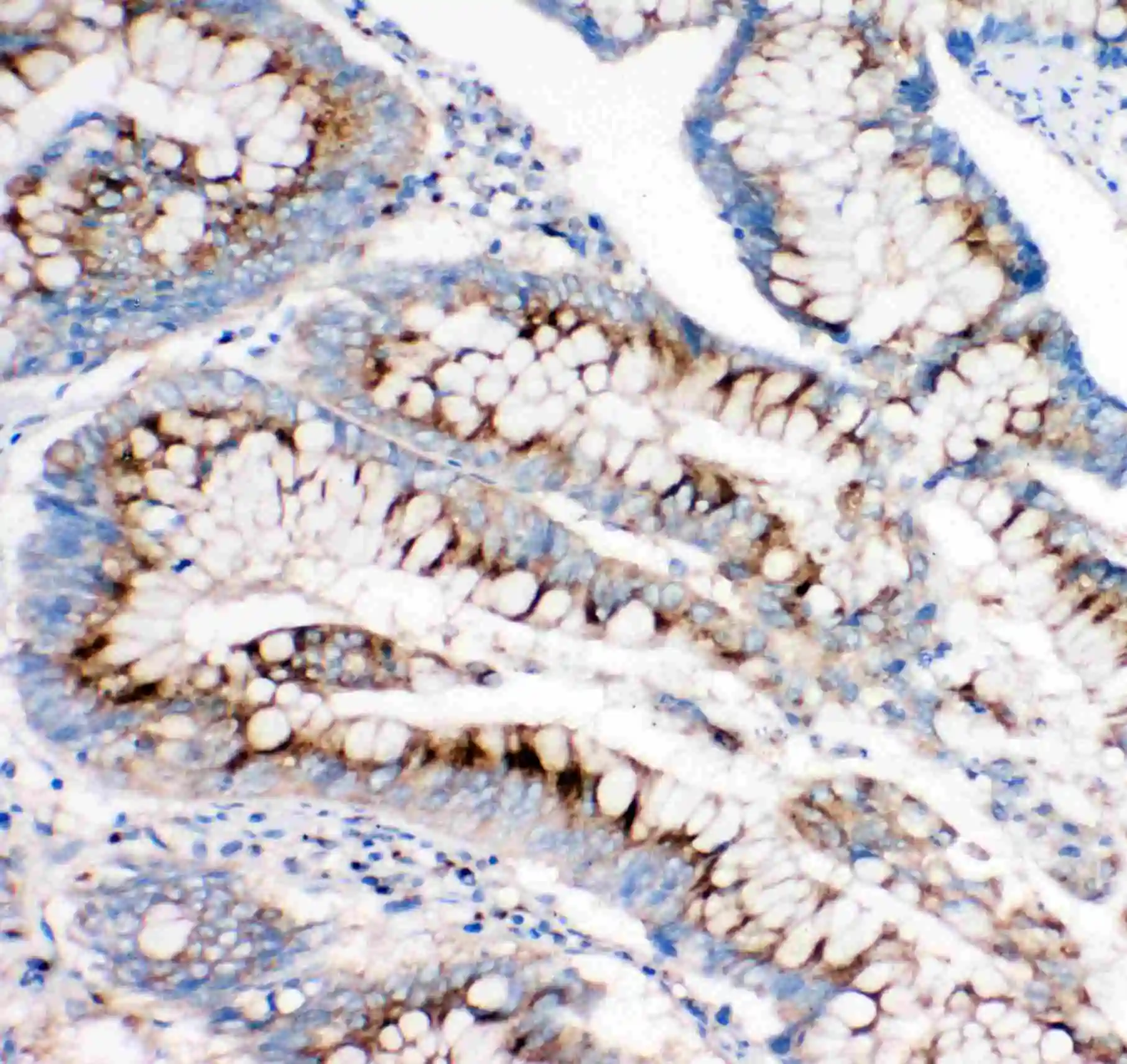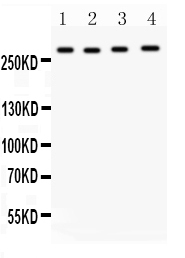
ICC/IF analysis of HCT116 cell using GTX12397 IGF2R antibody.
IGF2R antibody
GTX12397
ApplicationsImmunoFluorescence, Western Blot, ImmunoCytoChemistry, ImmunoHistoChemistry, ImmunoHistoChemistry Paraffin
Product group Antibodies
ReactivityHuman, Mouse, Rat
TargetIGF2R
Overview
- SupplierGeneTex
- Product NameIGF2R antibody
- Delivery Days Customer9
- Application Supplier NoteWB: 0.1-0.5microg/ml. ICC/IF: 0.5-1microg/ml. IHC-P: 0.5-1microg/ml. *Optimal dilutions/concentrations should be determined by the researcher.Not tested in other applications.
- ApplicationsImmunoFluorescence, Western Blot, ImmunoCytoChemistry, ImmunoHistoChemistry, ImmunoHistoChemistry Paraffin
- CertificationResearch Use Only
- ClonalityPolyclonal
- Concentration500 ug/ml
- ConjugateUnconjugated
- Gene ID3482
- Target nameIGF2R
- Target descriptioninsulin like growth factor 2 receptor
- Target synonymsCD222, CI-M6PR, CIMPR, M6P-R, M6P/IGF2R, MPR 300, MPR1, MPR300, MPRI, cation-independent mannose-6-phosphate receptor, 300 kDa mannose 6-phosphate receptor, CI Man-6-P receptor, IGF-II receptor, M6P/IGF2 receptor, insulin-like growth factor II receptor
- HostRabbit
- IsotypeIgG
- Protein IDP11717
- Protein NameCation-independent mannose-6-phosphate receptor
- Scientific DescriptionThis gene encodes a receptor for both insulin-like growth factor 2 and mannose 6-phosphate. The binding sites for each ligand are located on different segments of the protein. This receptor has various functions, including in the intracellular trafficking of lysosomal enzymes, the activation of transforming growth factor beta, and the degradation of insulin-like growth factor 2. Mutation or loss of heterozygosity of this gene has been association with risk of hepatocellular carcinoma. The orthologous mouse gene is imprinted and shows exclusive expression from the maternal allele; however, imprinting of the human gene may be polymorphic, as only a minority of individuals showed biased expression from the maternal allele (PMID:8267611). [provided by RefSeq, Nov 2015]
- ReactivityHuman, Mouse, Rat
- Storage Instruction-20°C or -80°C,2°C to 8°C
- UNSPSC12352203




![FACS analysis of HeLa cells using GTX64270 IGF2 Receptor antibody [GT1078]. Blue : Primary antibody Red : Isotype control](https://www.genetex.com/upload/website/prouct_img/normal/GTX64270/GTX64270_20180608_FACS_w_23061203_493.webp)
